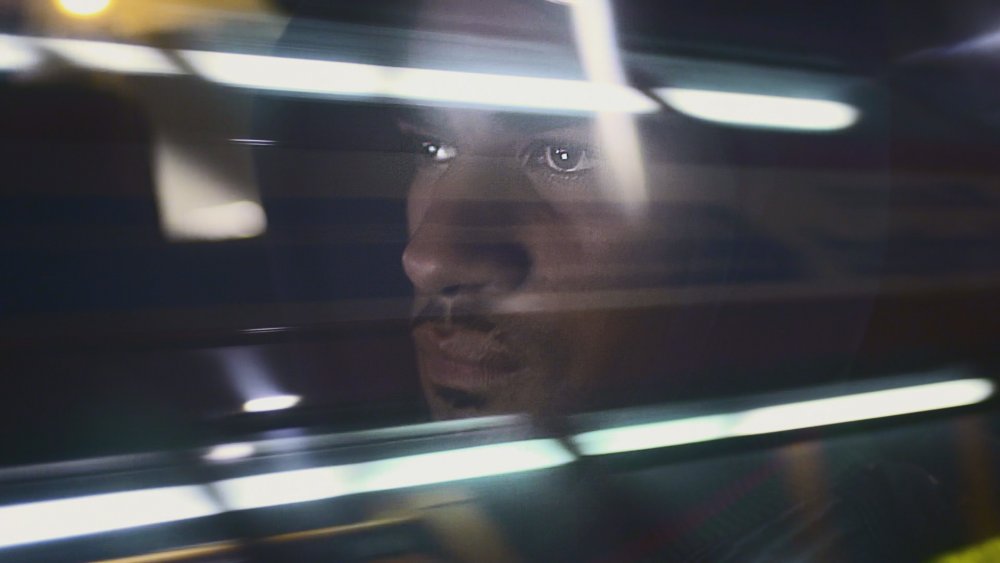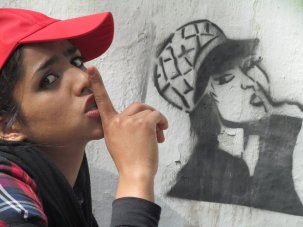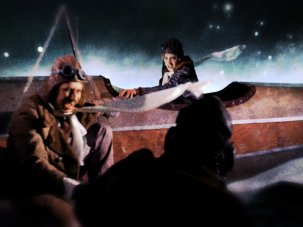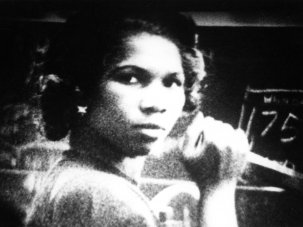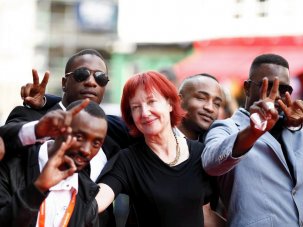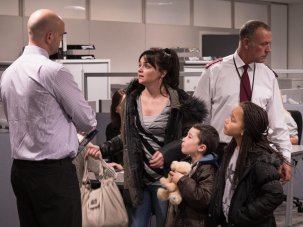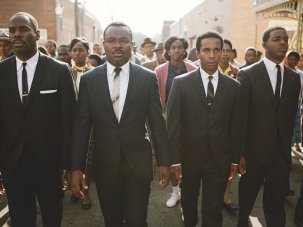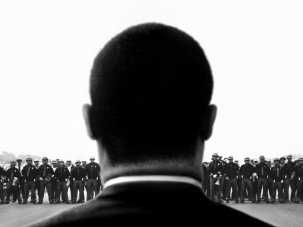“Everybody wants to change the world but no one wants to change themselves.” This maxim from Leo Tolstoy concludes The Hard Stop, a powerful and timely documentary whose main characters valiantly challenge that notion, against the odds.
United Kingdom/USA 2015
Certificate 15 85m 33s
Director George Amponsah
[1.78:1]
UK release date 15 July 2016
Distributor Metrodome Distribution Ltd
thehardstopfilm.com
► Trailer
Childhood friends Marcus and Kurtis grew up on the Broadwater Farm estate in Tottenham, north London, alongside Mark Duggan – a young black man who was killed by an armed police officer in 2011 following an arrest manoeuvre known as a hard stop, his death triggering local riots that soon spread across the UK. The Hard Stop focuses on the human story behind the fatal events in Tottenham and on the impact of Duggan’s death on his family and friends, particularly Marcus and Kurtis, who are still struggling with the consequences.
Director George Amponsah began his career as a photographer, and since then has worked mainly for television. His first feature-length documentary, co-directed with Cosima Spender, was 2004’s The Importance of Being Elegant, which explored the flamboyant fashion cult established by the colourful Congolese musician Papa Wemba. Amponsah’s subsequent solo film, The Fighting Spirit (2007), followed three young Ghanaian boxers – two men and a woman – battling their way out of impoverished backgrounds to achieve prizefighting success.
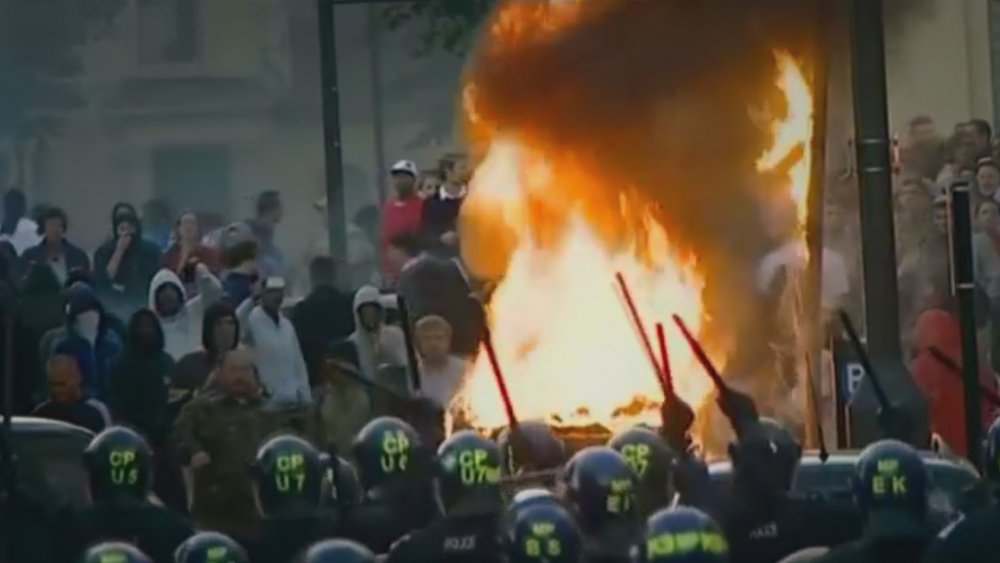
The Hard Stop makes potent use of archive footage to establish the backdrop to the three friends’ childhoods, notably media coverage of the notorious deaths of Cynthia Jarrett and PC Keith Blakelock on the Broadwater Farm estate in 1985, and of the more recent killing of Duggan and the subsequent inquest into the cause of his death.
Amponsah’s empathetic interviews with Marcus and Kurtis, from behind the camera, are intercut with the archive material. At the film’s visually stylish opening, shot inside a moving car, Marcus sums up his view of the police: “If they can’t get you on the basis of hard evidence, they’ll stitch you up.” From this bleak starting point the film follows his and Kurtis’s efforts to change their own lives in the face of their unpromising circumstances.
Kurtis has spent time in prison for drug-dealing – he explains wryly that he was “just trying to be a young entrepreneur”. But now that he has two young sons, “It’s not about me, it’s about them.” His efforts to escape his difficult past and find employment see him taking a telesales job that involves a commute from London to Norwich – demonstrating a job-seeking determination that surely even get-on-your-bike Norman Tebbit would admire.
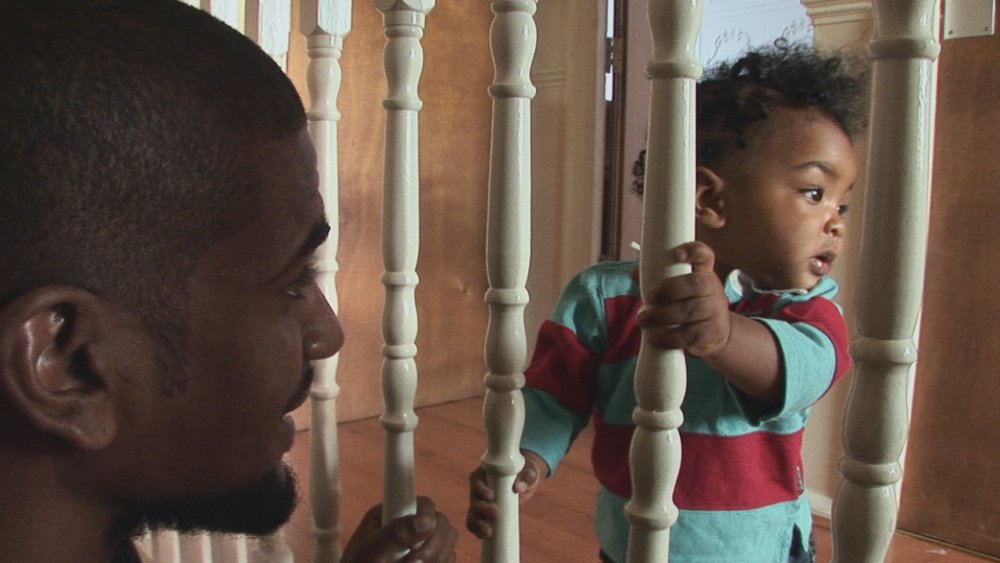
Kurtis’s irrepressible spirit is further illustrated by an alarming high-speed driving escapade, in which he weaves through multi-lane traffic in competition with another young male driver who challenges him to ‘rally’. The manner in which they egg each other on is risky and irresponsible, but as far as the young participants are concerned it’s just good-natured rivalry. This pursuit of short-lived, dangerous thrills – with little apparent regard for the consequences – can be seen as a reflection of the wider experience of many young men such as Kurtis, who come from underprivileged backgrounds and are desperate to escape hardship, if only momentarily.
The more gently spoken Marcus serves a prison sentence during the course of the film, having been named as an instigator of the Tottenham riots. Like Kurtis, he is determined to turn his life around, while also supporting Duggan’s bereaved family in their efforts to establish the facts about his death. He converts to Islam, and becomes a youth mentor after his release from prison, devoting himself to encouraging young black men and boys to change their lives – by starting with themselves. Tolstoy would have been impressed.
In the August 2015 issue
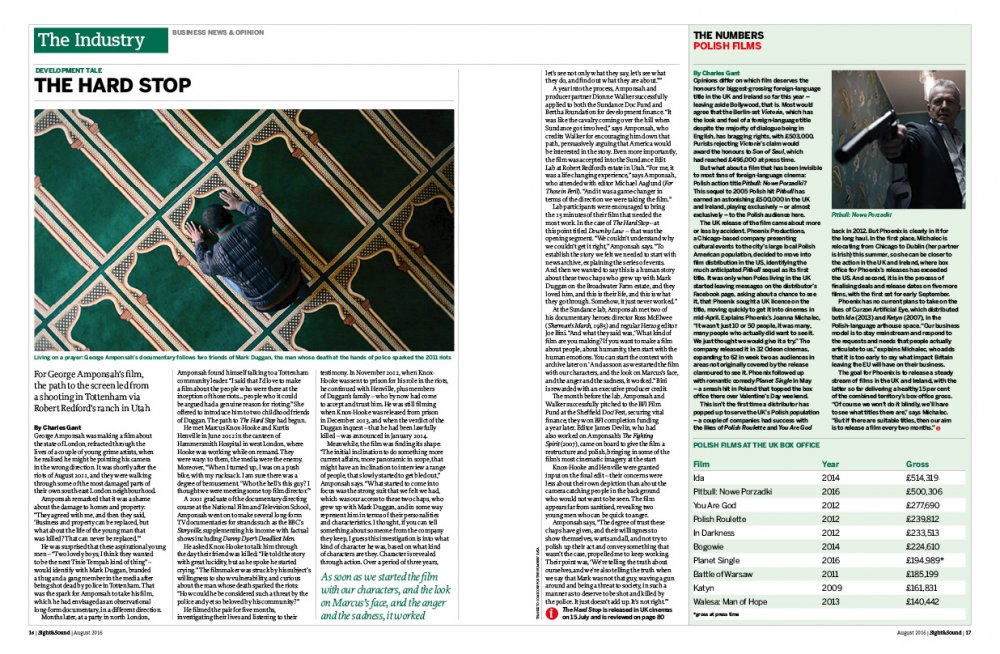
Development tale: The Hard Stop
For George Amponsah’s film, the path to the screen led from a shooting in Tottenham via Robert Redford’s ranch in Utah. By Charles Gant.
-
Sight & Sound: the August 2016 issue

Jon Savage, Thurston Moore and Don Letts on 40 years of punk. Plus the changing shape of cinema distribution, Chevalier, Born to Be Blue, and the S...
-
The Digital Edition and Archive quick link
Log in here to your digital edition and archive subscription, take a look at the packages on offer and buy a subscription.




